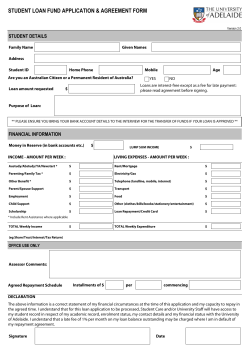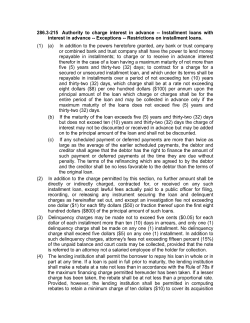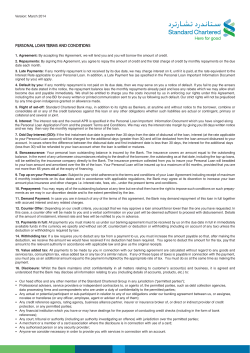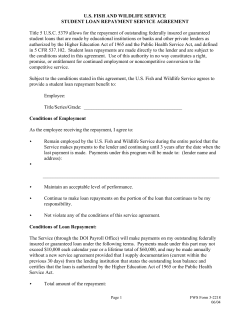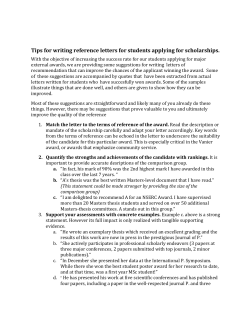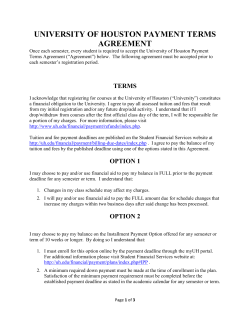
I Received My Award Letter – What’s Next?
-an equal opportunity college- I Received My Award Letter – What’s Next? Total Estimated Financial Aid Award Offer Your aid offer is based either on your eligibility for need and/or merit-based aid; we build a financial aid package using available funds from grants, scholarships and work-study. The Office of Financial Aid (OFA) reserves the right, on behalf of the college, to review, revise or cancel an award at any time. You will be notified of any changes in your status, but you should review your financial aid status on a weekly basis by logging into the MyCF student portal and selecting the Financial Aid tab then choosing My Financial Aid. Award revisions may be made because of a change in your financial or academic status, a change of academic program, a change in credit hours, or because of your failure to maintain Satisfactory Academic Progress standards. Any commitment of federal or state funds is tentative and contingent upon subsequent appropriation and actual receipt of the funds by the College of Central Florida. You must report to the OFA any aid you receive which is not awarded through the OFA (e.g., Vocational Rehabilitation, Scholarships/grants awarded by outside agencies, etc.). The receipt of such aid may result in an adjustment to your award. If you feel that your award amount is incorrect, a written request must be submitted for review. Any revision request may cause delays in receiving your financial aid. Satisfactory Academic Progress (SAP) Your financial aid award is contingent upon maintaining SAP as follows: You must maintain a cumulative 2.0 grade point average. You must make progress toward your degree each academic year. Minimum progress requires you to earn 67 percent of all cumulative credit hours attempted, including classes from which you withdraw. You must complete your degree, technical diploma or certificate within 150% of the credit hours designated for your program of study. Vocational clock-hour programs must complete their program of study in 100% of required clock hours. For more SAP information contact the OFA or refer to the CF website or catalog. Payment of Funds When you register, the College will open a student account for you that reflects your actual charges and payments (refer to your Course and Fee Statement). You will be allowed to defer payment of your fees based on the anticipated financial aid to be applied to your account after the Add/Drop period (usually 3-5 days after the first day of classes) and when your instructor(s) complete verification of your attendance (see Verification of Attendance below). After your outstanding charges are deducted from your total award amount, any remaining aid funds will be disbursed electronically to your CF OneCard as a refund. Any other deferred outstanding obligations still owed to the college and not covered by financial aid must be satisfied by you at the Cashier’s Office. Since funds are not disbursed until the Add/Drop period has ended, please ensure that your class schedule is complete and accurate by the end of the Add/Drop period for each semester. Inaccurate schedules could cause a reduction or loss of aid. Your aid will be paid in semester installments. Visit www.cfonecard.com for additional information concerning activation of your card, preference for receiving funds (Activation Options), and replacement of lost cards. Types of Financial Aid Federal and State Grants: Grants are financial aid that does not have to be repaid (unless, for example, you withdraw from school and owe back unearned aid). There are five types of federal/state student grants that you may have been awarded by the college: Federal Pell Grant: If your Estimated Financial Aid Award indicates that you are eligible for this grant, the amount of Pell Grant funds listed is an estimated amount. If you are to receive Pell Grant funding during the academic year, your estimated award amount will most likely be based on full-time enrollment (12 credit hours) for the semester(s) indicated. Prior to disbursement of funds, your award will be adjusted to your actual enrollment level if you are enrolled less than full-time. Nine to 11 credits per semester equals three-quarter-time enrollment, six to eight credit hours equals part-time enrollment and less than 6 hours equals less-than-part-time enrollment. Note: If you are enrolled full-time in the fall and spring semesters, you will have received the maximum Federal Pell Grant award available for the academic year. Under these circumstances, additional Federal Pell Grant funds will not be available to you if you decide to attend in the summer semester. However, if you attend less than full-time in the fall and or spring semesters, you may be eligible to use your remaining Federal Pell Grant allowance in the summer semester. Florida Student Assistance Grant (credit courses) and the Florida Student Assistance Grant – Career Education (vocational courses, (FSAG/FSAG-CE): If your award letter indicates that you are eligible for FSAG/FSAG-CE, please note that these grants are tentative and contingent upon state appropriations and availability of funds. Enrollment in an AA/AS program of study for FSAG or in a vocational certificate program for FSAG-CE, verification of need and other student eligibility requirements are determined by the college. You must be enrolled at least half-time (6 credit hours) to receive FSAG/FSAG-CE. This award is for fall and spring only. Funds are not available for the summer semester. Federal Supplemental Educational Opportunity Grant (FSEOG): If your award letter indicates that you are eligible for FSEOG, please note that awards for this federal grant are tentative and contingent upon appropriations, actual receipt of funds, enrollment in an eligible program and verification of need and other student eligibility requirements as determined by the college. This award is restricted to those students who are eligible for Federal Pell Grant funds and who apply to the college early as these funds are limited and are awarded on a first-apply, first-award basis. The award will be prorated if you attend less than full-time and you must attend at least half time to qualify for funding. Florida Bright Futures (BF): You must be enrolled as a degree/college credit certificate-seeking student and attend a minimum of six credit hours per semester. Summer is not an eligible semester for funding. Note: No preparatory or remedial course work is funded or considered in the minimum hours required for eligibility. Also, be advised that you must earn all credit hours for which you were paid for the academic year or you may jeopardize future funding. For example, a full-time student receiving Bright Futures for the fall and spring semesters needs to earn 24 credit hours for the academic year (fall/spring/summer); a half-time student needs to earn 12 credit hours for the academic year. Summer credit hours earned may count toward GPA improvement required for the academic year for first-year students only; however, students must advise the OFA for reinstatement consideration. For information regarding Bright Futures scholarship requirements and current award amounts, please go to the following website: http://www.floridastudentfinancialaid.org/SSFAD/factsheets/BF.htm Federal Direct Loans: CF participates in the William D. Ford Federal Direct Loan Program. CF students (and parents) are eligible to participate in the three types of loans available in this program: Subsidized Stafford Loan, Unsubsidized Stafford Loan, and the Parent Loan for Undergraduate Students (PLUS). Steps to Apply and Complete Your Loan Processing: If your award letter indicates that you have been awarded loans, you must complete what is called a Master Promissory Note (MPN) – basically, an agreement to pay back all loans in the future. You can do this online at https://studentloans.gov/myDirectLoan/index.action or by going to the Financial Aid page of the MyCF student portal, selecting Other Financial Aid Resources and clicking Master Promissory Note. NOTE: If you decide you do not want the loan, please contact the OFA to cancel. If you do not promptly complete your MPN online, the loans listed in your student account will be cancelled. All first-time borrowers at CF must complete Entrance Counseling in order to receive a Federal Direct Loan. You can do this by going on line at https://studentloans.gov/myDirectLoan/index.action or by going to the Financial Aid page of the MyCF student portal website, selecting Other Financial Aid Resources and clicking Entrance Counseling. During your Entrance Counseling session, you will learn important information regarding the key elements of your loan, including deferment and repayment information. NOTE: If you decide you do not want the loan, please contact the OFA to cancel. If you do not promptly complete your entrance counseling online, the loans listed in your student account will be cancelled. Remember, to receive your loans, you must enroll in at least six credit hours (half-time status). Otherwise, your loans will be cancelled and you will be responsible for all debt incurred at CF. In order for you to be in a deferred loan repayment status while you are in school (In School Deferment), you must enroll in at least six credit hours. This does not apply to the summer term, unless a disbursement is scheduled for the summer semester. If you stop attending or drop to less than six credit hours, your six-month Grace Period begins and you must complete online Exit Counseling at http://www.nslds.ed.gov/nslds_SA. The exit counseling session will give you important information about repaying your loans and explain what options you have available should you have concerns with the terms of your loans. Loan Default (Failure to repay a loan according to the terms agreed to when you signed a promissory note): If you defaulted on a prior student loan at any other school or have excessive loan debt, the College has the authority to refuse to certify additional student loans. Federal Subsidized Stafford Loan: When you apply for aid at CF using the FAFSA, you may be eligible for a subsidized loan if you have unmet financial aid need (grants, scholarships, and other forms of aid will be awarded first to determine if you have remaining unmet need). Under the terms of this loan, the Federal government will pay the interest on the loan while you are enrolled in school. You must repay the loan plus a fixed interest rate beginning six months after you graduate or leave school or drop to less than half-time status (six credit hours). Federal Unsubsidized Stafford Loan: This cost-based loan does not require unmet financial need, but does include all of the other requirements listed above, with the exception that the student is responsible for paying the interest while still in school. You may pay the interest while in school or you may contact the loan-servicing center and request that the interest be deferred until the time of repayment. Parent Loan for Undergraduate Students (PLUS): Parents of dependent students may borrow on behalf of their children. This loan is a credit-worthy loan and must be repaid over a ten-year period. Repayment begins immediately after disbursement of the loan. Learn the Basics and Manage Your Debt. Students should refer to the Federal Student Aid website at www.federalstudentaid.ed.gov/pubs for application and repayment information on student loans. If you have additional questions or concerns regarding loans, please contact OFA. Federal Work-Study (FWS): If your award letter indicates that you have been awarded FWS, you must go to the CF Website (Financial Aid – Forms), download, complete and forward the Federal Work-Study Accept or Decline Form to the OFA. This form must be submitted within 30 days of your award notice or the Federal Work-Study offer will be withdrawn. After the acceptance form has been submitted, you will be contacted with a date for orientation. Most FWS students are employed oncampus, but a few may be given the opportunity to work off-campus in community service jobs. In order to be eligible for FWS, you must be enrolled in at least six credit hours of instruction. On average, students work 12 to 15 hours per week at the Federal minimum wage rate of pay. Bookstore Authorization Textbooks, study guides, manuals, and program kits may be charged to your student account up to the limit set by the college each semester (usually $700, depending on your program of study). The OFA will determine your eligibility to charge books based on your estimated financial aid. If you are registered in classes you should be able to charge books at the bookstore on the Ocala or Citrus campuses by completing the online Bookstore Authorization on the Financial Aid page of the MyCF student portal. Students at all campuses (Marion, Citrus and Levy) can order and charge their books online against their financial aid awards and specify a pickup location using the bookstore’s website: http://cf.bncollege.com/webapp/wcs/stores/servlet/TBWizardView?catalogId=10001&storeId=29557&langId=-1. Generally, book charges begin the week prior to the start of each semester. Look for dates on the MYCF Web Portal. Verification of Attendance Your attendance will be verified and reported by your instructors (after the Add/Drop period) to the OFA after you have met the Federal definition of attendance: Attendance must be academic attendance or attendance at an academically-related activity. The OFA must receive official verification of your class attendance before aid can be disbursed. Please note that if you add classes after verification of attendance is completed for the semester you will not be awarded financial aid for those additional classes. Further, students who register for a B term course in addition to an A or C term course must register for the B term course before the end of the A/C drop/add period in order for the B term course to be considered for financial aid. Mini-mester Courses Some courses or program modules are offered within the standard semester (e.g., 8 weeks vs. 16 weeks). These courses may cause a delay in the reporting of attendance, review of aid eligibility and disbursement. If you drop a course prior to the start date, your financial aid must be recalculated and you will be responsible for any charges that that may result from the adjustments. If you have any concerns regarding your financial aid with mini-mester coursework, please contact OFA. Again, courses that are added after attendance verification is completed will not be eligible for additional financial aid. Vocational Clock-Hour Programs Aid is calculated on program clock hours rather than credit hours. Disbursements are made at the beginning and at specific intervals during the program based on full-time/part-time status and the length of the program. Please refer to the supplemental information provided with your award letter or contact OFA with any questions. Withdrawals Financial aid recipients who fail to pass and/or withdraw from the College (all courses in a given term) may have to repay unearned financial aid funds. In addition, withdrawals affect the Standards of Academic Progress (SAP) for financial aid recipients. The Federal Formula for Return of Title IV Funds determines the amount of Federal Title IV aid a student must repay. Repayment calculations for Bright Futures Scholarship Recipients are based on the current award amount per credit hour. Please contact OFA before withdrawing from any classes to determine the impact on your Financial Aid eligibility.
© Copyright 2025
